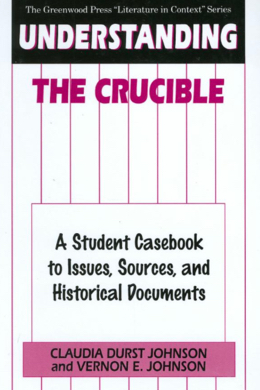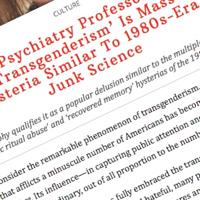Rascals case in brief
In the beginning, in 1989, more than 90 children at the Little Rascals Day Care Center in Edenton, North Carolina, accused a total of 20 adults with 429 instances of sexual abuse over a three-year period. It may have all begun with one parent’s complaint about punishment given her child.
Among the alleged perpetrators: the sheriff and mayor. But prosecutors would charge only Robin Byrum, Darlene Harris, Elizabeth “Betsy” Kelly, Robert “Bob” Kelly, Willard Scott Privott, Shelley Stone and Dawn Wilson – the Edenton 7.
Along with sodomy and beatings, allegations included a baby killed with a handgun, a child being hung upside down from a tree and being set on fire and countless other fantastic incidents involving spaceships, hot air balloons, pirate ships and trained sharks.
By the time prosecutors dropped the last charges in 1997, Little Rascals had become North Carolina’s longest and most costly criminal trial. Prosecutors kept defendants jailed in hopes at least one would turn against their supposed co-conspirators. Remarkably, none did. Another shameful record: Five defendants had to wait longer to face their accusers in court than anyone else in North Carolina history.
Between 1991 and 1997, Ofra Bikel produced three extraordinary episodes on the Little Rascals case for the PBS series “Frontline.” Although “Innocence Lost” did not deter prosecutors, it exposed their tactics and fostered nationwide skepticism and dismay.
With each passing year, the absurdity of the Little Rascals charges has become more obvious. But no admission of error has ever come from prosecutors, police, interviewers or parents. This site is devoted to the issues raised by this case.
On Facebook
Click for earlier Facebook posts archived on this site
Click to go to
Today’s random selection from the Little Rascals Day Care archives….
Click for earlier Facebook posts archived on this site
Click to go to
Today’s random selection from the Little Rascals Day Care archives….
Salem to Edenton was a road heavily traveled
 Feb. 9, 2015
Feb. 9, 2015
The Little Rascals Day Care case has often been likened to the Salem Witch Trials, but this lengthy list from “Understanding The Crucible: A Student Casebook to Issues, Sources, and Historical Documents” by Claudia Durst Johnson and Vernon Johnson (1998) drives home the point:
- Both involved children as accusers.
- Convictions were determined almost solely on the basis of the children’s testimony.
- Everything escalated rapidly – the number of children involved, the number of the accused, and the different kinds of charges.
- The minds of the children were in both cases manipulated by adults.
- Charges were instigated by adults who held grudges against the accused.
- There was an absence of corroborating evidence.
- “Fanciful” testimony was regarded seriously. In Salem, it was spectral evidence. In the twentieth-century cases, it included children’s stories of spaceships, sharks, and ritual murder.
- Community hysteria arose from the feeling that evil – witches and sex abusers – had access to their children.
- “Poppets” or dolls were involved. In the Salem trials, little dolls were immediately seized upon as poppets used by witches to pierce with pins with the object of inflicting torture. In sexual abuse cases, “anatomically correct” dolls were used by psychologists to coach details from the children.
- There were charges that satanic rituals were conducted.
- The prosecution showed a single-minded determination, by threat or bribe, to get the accused to confess.
- The prosecution showed a single-minded determination, by threat or bribe, to get children to disclose more and more details of misconduct without regard to truth.
Transgender movement compared to hysterias of 1980s and ’90s
 Nov. 21, 2016
Nov. 21, 2016
“Transgenderism would refute the natural laws of biology and transmute human nature. The movement’s philosophical foundation qualifies it as a popular delusion similar to the multiple-personality craze, and the widespread ‘satanic ritual abuse’ and ‘recovered memory’ hysterias of the 1980s and ’90s. These last two involved bizarre accusations of child abuse and resulted in the prosecution and ruined lives of the falsely accused.
“Such popular delusions are characterized by a false belief unsupported by any scientific or empirical evidence and have a contagious quality that overrides rational thinking and even common sense. …”
– From “Psychiatry Professor: ‘Transgenderism’ Is Mass Hysteria Similar To 1980s-Era Junk Science” by Richard B. Corradi at the Federalist (Nov. 17)
Dr. Corradi is professor emeritus of psychiatry at Case Western Reserve School of Medicine, where his opinion of transgenderism is “in no manner shared by this department or by Case Western Reserve or… the American Psychiatric Association or mainstream psychiatry.” A more widely accepted view: “You would think that a professor of psychiatry would know better” by David Cary Hart at the Slowly Boiled Frog (Nov. 18)
But what you won’t see debated among 21st Century psychiatrists and social scientists is Corradi’s characterization of “satanic ritual abuse” as “a popular delusion.” Perhaps one day the American Professional Society on the Abuse of Children will decide to join them.
![]()
Moral panics, strange to begin with, also make strange bedfellows

Cohen
June 14, 2018
“America has a long history of episodic moral panics in which self-styled experts, sensationalistic journalists and public officials used emotionally charged language and a barrage of (often distorted) statistics to portray a particular social problem as widespread and urgent….
“The 1980s brought [a] moral panic precipitated by unease about double-income families and the supervision of children by strangers at day-care centers….
“All these scares produced unexpected political alliances. Conservatives concerned with moral purity, law-and-order and Christian values joined forces with feminists worried about victims of sexual trauma and liberals in favor of strong government regulation. When forces from the right and left converge in a moral panic, their causes possess greater appeal to the public. We see this today as women’s rights advocates join the sex-trafficking fight along with the religious right. The result is a runaway train with no real political force left in opposition….”
– From “President Trump signed a new law that aims to fight online sex trafficking. Here’s why that’s bad.” by Sascha Cohen in the Washington Post (April 12)
![]()
‘The right man’ was the wrong man? No way!
 March 19, 2012
March 19, 2012
In “The Folly of Fools: The Logic of Deceit and Self-Deception in Human Life” (2011), Robert Trivers briefly addresses the causes and costs of the ritual abuse mania.
I asked Trivers, professor of anthropology and biological sciences at Rutgers University, about the role played by prosecutors in such cases:
“Prosecutors are notoriously vulnerable to tunnel vision – i.e., once a suspect has been identified, others disappear from sight; they also need to justify themselves in retrospect.
“I was told by (Innocence Project cofounder Peter J.) Neufeld that even after incontrovertible DNA evidence, 75 percent of the original detectives who came up with (and helped convict) the wrong person still say they believe they got ‘the right man.’ ”











0 CommentsComment on Facebook